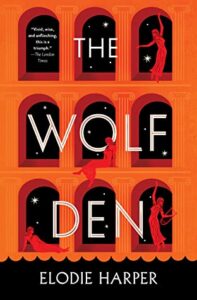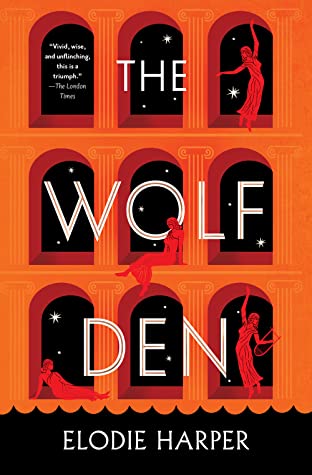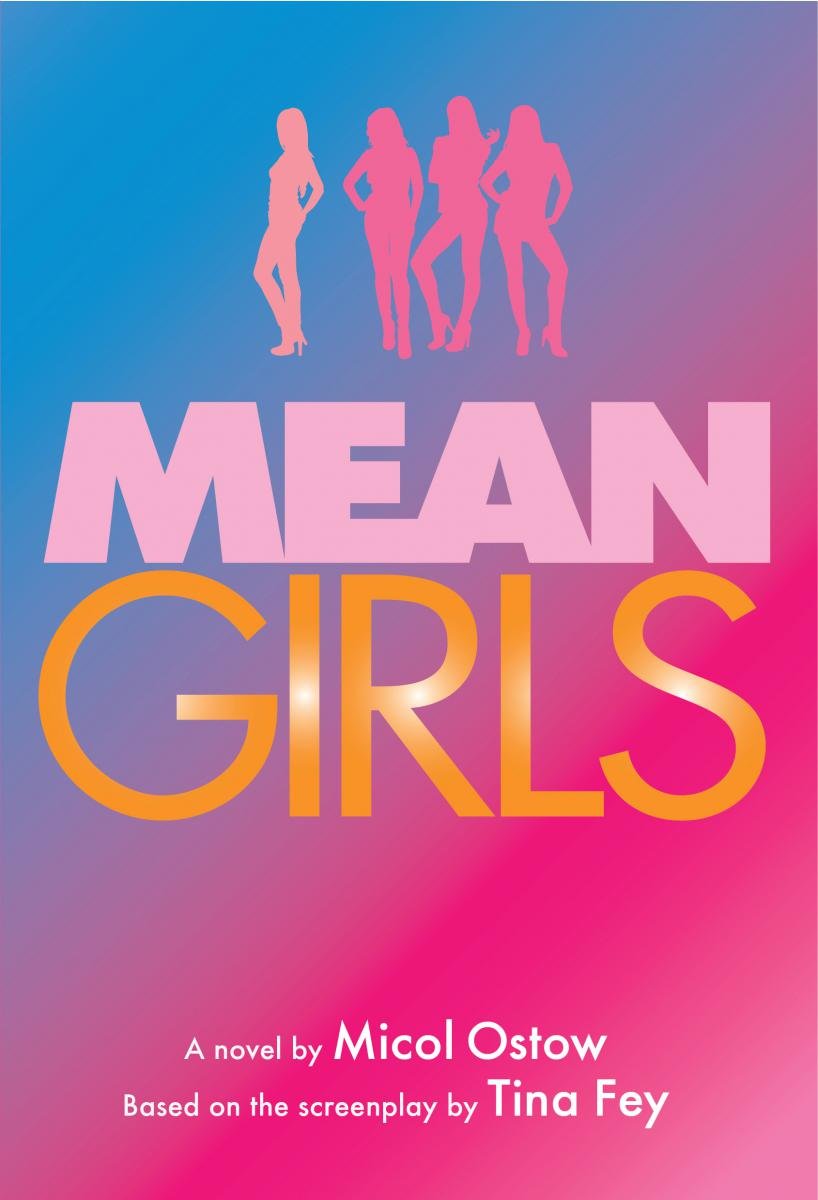
The Wolf Den is a tale of sisterhood, vulgarity, heartache, and the sheer willpower of building yourself up after being utterly broken.
Harper tells the story, set in a brothel in Pompeii, of Amara, a Greek woman sold into slavery after the death of her father. The story follows this young prostitute and the sisterhood of women who work alongside her, serving the lowlife men of Pompeii who are drawn by their unnatural beauty and sultry advances.
Right from the beginning of the first page, you feel connected to the main character, Amara, who is introduced to the reader naked and swimming in the baths in Pompeii following a night of working as a prostitute. She is undeniably beautiful, and the detailed descriptions of the women washing are ethereally Venusian. Unfortunately, that’s where the illusion ends. Immediately, the women are forced to leave the baths when an argument breaks out, and readers are plunged into the damp cobblestone alleys of the city of Pompeii.
Like the alleys, the brothel where Amara and her friends work is dull and falling apart at the seams. With sleazy pimp Felix, who extorts and sexually abuses the women, and the heavy financial debts of the ‘She-Wolves’ – the name coined for the women who work as prostitutes – there is little room for the women to hope for a different future, where they could buy back their freedom.
But Amara has different plans…
With the fiercest group of ‘She-Wolves’ – Dido, Cressa, Victoria, and Beronice – behind her, Amara slowly infiltrates the inner business workings of Pompeii with the brothel as her cover and learns how she can gain her power back from the men who brutally take it from her.
While this novel is exciting and adventurous at face value, it quickly becomes a character-driven novel that is less about plot development. While the novel begins with rich, descriptive detail of the village of Pompeii and its unique streets, Harper falls flat on keeping that up consistently throughout the story.
The historical research Harper has conducted for the novel is clearly extensive, seen through each chapter featuring a quote about or from Pompeii itself (found in graffiti, ancient texts, etc.). The semiotics of the language and understanding of cultural aspects, such as architecture, fashion, and societal expectations, were also incredibly thorough. However, the dialogue within the book was incredibly frustrating and underwhelming. It felt too much like a forced back-and-forth between characters to make sure everyone got their two cents into a conversation, rather than a natural flow. The vulgar swearing and use of extremely graphic detail of sexual violence created a sense of shock and alienation instead of empathy.
This is consistent with the behaviors of the characters, written almost with the tone of a screenplay. Little description was given of the way characters interacted and spoke in groups, which was different from the way the narrator detailed omnipresent thoughts, which were written richly and vividly, as though a portrait of emotion about Amara and the other women was being painted.
I would have liked the worldbuilding to be more along the lines of Ancient Greek retellings, such as Circe, by Madeline Miller, or A Touch of Darkness, by Scarlett St. Clair. These books are deeply descriptive and create worlds where all the senses are engaged and pull the reader in gradually, to the point of never wanting to close the book. Harper had the potential to reach this kind of luscious storytelling but fell short, as poor worldbuilding and jarring dialogue made it obvious this was a debut novel. I believe that this novel would have felt more natural had it been published as a contemporary romance in an urban setting instead of a historical one. Being pitted against other iconic generic love stories, like The Song of Achilles, by Madeline Miller, The Wolf Den falls short.
I am glad that this is part of a prospected trilogy, as there is potential for this series to continue into a truly unforgettable story and redeem the otherwise flat ending of this novel. Overall, I would recommend The Wolf Den to those who enjoy the written style of contemporary romances but are interested in a fun introduction to historical fiction.
A copy of this book was provided by the publisher, Union Square & Co., for review.



